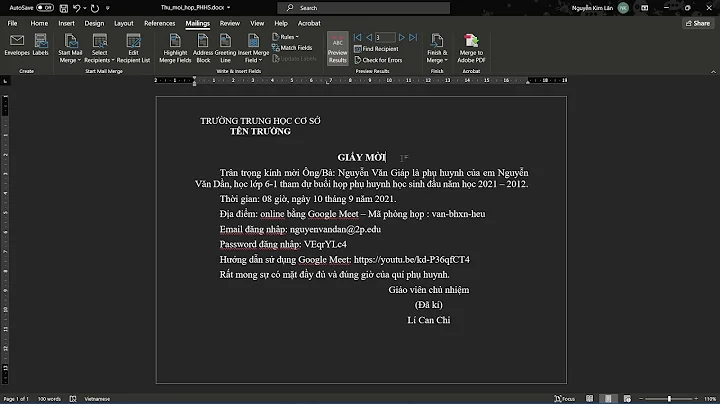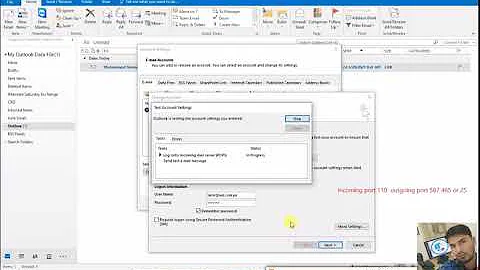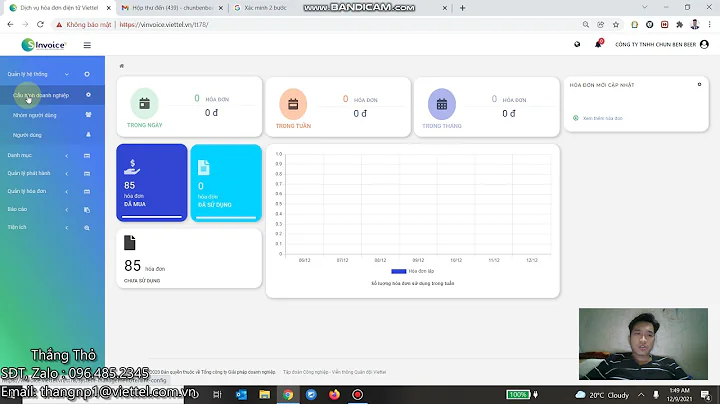How to send utf-8 e-mail?
56,167
Solution 1
You should just add 'utf-8' argument to your MIMEText calls (it assumes 'us-ascii' by default).
For example:
# -*- encoding: utf-8 -*-
from email.mime.multipart import MIMEMultipart
from email.mime.text import MIMEText
msg = MIMEMultipart("alternative")
msg["Subject"] = u'テストメール'
part1 = MIMEText(u'\u3053\u3093\u306b\u3061\u306f\u3001\u4e16\u754c\uff01\n',
"plain", "utf-8")
msg.attach(part1)
print msg.as_string().encode('ascii')
Solution 2
The question asked by Martin Drlík is 7 years and 8 months old... And nowadays, thanks to the developers of Python, encoding problems are solved with version 3 of Python.
Consequently, it is no longer necessary to specify that one must use the utf-8 encoding:
#!/usr/bin/python2
# -*- encoding: utf-8 -*-
...
part2 = MIMEText(text, "plain", "utf-8")
We will simply write:
#!/usr/bin/python3
...
part2 = MIMEText(text, "plain")
Ultimate consequence: Martin Drlík's script works perfectly well!
However, it would be better to use the email.parser module, as suggested in email: Examples.
Related videos on Youtube
Author by
Martin Drlík
Updated on July 09, 2022Comments
-
Martin Drlík almost 2 years
how to send utf8 e-mail please?
import sys import smtplib import email import re from email.mime.multipart import MIMEMultipart from email.mime.text import MIMEText def sendmail(firm, fromEmail, to, template, subject, date): with open(template, encoding="utf-8") as template_file: message = template_file.read() message = re.sub(r"{{\s*firm\s*}}", firm, message) message = re.sub(r"{{\s*date\s*}}", date, message) message = re.sub(r"{{\s*from\s*}}", fromEmail, message) message = re.sub(r"{{\s*to\s*}}", to, message) message = re.sub(r"{{\s*subject\s*}}", subject, message) msg = MIMEMultipart("alternative") msg.set_charset("utf-8") msg["Subject"] = subject msg["From"] = fromEmail msg["To"] = to #Read from template html = message[message.find("html:") + len("html:"):message.find("text:")].strip() text = message[message.find("text:") + len("text:"):].strip() part1 = MIMEText(html, "html") part2 = MIMEText(text, "plain") msg.attach(part1) msg.attach(part2) try: server = smtplib.SMTP("10.0.0.5") server.sendmail(fromEmail, [to], msg.as_string()) return 0 except Exception as ex: #log error #return -1 #debug raise ex finally: server.quit() if __name__ == "__main__": #debug sys.argv.append("Moje") sys.argv.append("[email protected]") sys.argv.append("[email protected]") sys.argv.append("may2011.template") sys.argv.append("This is subject") sys.argv.append("This is date") if len(sys.argv) != 7: exit(-2) firm = sys.argv[1] fromEmail = sys.argv[2] to = sys.argv[3] template = sys.argv[4] subject = sys.argv[5] date = sys.argv[6] exit(sendmail(firm, fromEmail, to, template, subject, date))Output
Traceback (most recent call last): File "C:\Documents and Settings\Administrator\Plocha\Newsletter-build-desktop\sendmail.py", line 69, in <module> exit(sendmail(firm, fromEmail, to, template, subject, date)) File "C:\Documents and Settings\Administrator\Plocha\Newsletter-build-desktop\sendmail.py", line 45, in sendmail raise ex File "C:\Documents and Settings\Administrator\Plocha\Newsletter-build-desktop\sendmail.py", line 39, in sendmail server.sendmail(fromEmail, [to], msg.as_string()) File "C:\Python32\lib\smtplib.py", line 716, in sendmail msg = _fix_eols(msg).encode('ascii') UnicodeEncodeError: 'ascii' codec can't encode character '\u011b' in position 385: ordinal not in range(128)-
orlp about 13 yearsWe are missing line numbers so we can locate the exact line of the error.
-
 blubb about 13 yearsThe error is probably in the
blubb about 13 yearsThe error is probably in themessage.as_string(). You need to provide more, or we won't be able to help you.
-
-
 hephestos about 12 yearsSorry for being this old post and I write a new question underneath but I have to... Is supposed a human to write things like 'u\3035\u3093 ????? you have some japanese word right? how do you come up with these codes? from the tutorials i have read I always see this numbers ( while I understand are codes for letters , I don;t get how the input is done to this code or similar ones ...)
hephestos about 12 yearsSorry for being this old post and I write a new question underneath but I have to... Is supposed a human to write things like 'u\3035\u3093 ????? you have some japanese word right? how do you come up with these codes? from the tutorials i have read I always see this numbers ( while I understand are codes for letters , I don;t get how the input is done to this code or similar ones ...) -
sasikumar about 12 yearsThese codes are here only for illustration purposes. You can set your python source input encoding to utf-8 and type Unicode constants directly. If you need to get those '\u...' codes for some chars, you can just do something like
print repr(u'テストメール') -
 hephestos about 12 yearsFirst thank you for the quick answer...Check this out ( to understand my issue with this question) I did this test : I put a utf-8 word (greek letters) in a variable and stored in a dictionary 'ΤΕΣΤ'=X. In the "Immediate window" when I do print listOfutfs reports me some u'' codes! ( from mysql I had ΤΕΣΤ retrieved ). Then I say ok give me the value back as listOfutfs['ΤΕΣΤ'], it replies to me KeyError: '\xce\xa6\xce\xa1\xce\x9b\xce\x9a'!!!!!!!!!!!!!!!!
hephestos about 12 yearsFirst thank you for the quick answer...Check this out ( to understand my issue with this question) I did this test : I put a utf-8 word (greek letters) in a variable and stored in a dictionary 'ΤΕΣΤ'=X. In the "Immediate window" when I do print listOfutfs reports me some u'' codes! ( from mysql I had ΤΕΣΤ retrieved ). Then I say ok give me the value back as listOfutfs['ΤΕΣΤ'], it replies to me KeyError: '\xce\xa6\xce\xa1\xce\x9b\xce\x9a'!!!!!!!!!!!!!!!! -
 hephestos about 12 yearsok, got it [u'ΤΕΣΤ']! terrible sorry, I didn't know that this whole thing of u'' is for explanatory reasons....How do you concatenate though, unicodes in python then? you can not write u""" ΤΕΣΤ """ also, right ?
hephestos about 12 yearsok, got it [u'ΤΕΣΤ']! terrible sorry, I didn't know that this whole thing of u'' is for explanatory reasons....How do you concatenate though, unicodes in python then? you can not write u""" ΤΕΣΤ """ also, right ? -
sasikumar about 12 yearsYou actually can. Follow the python Unicode howto: docs.python.org/howto/unicode.html
-
 hephestos about 12 yearsThank you abbot, I just realised how many months lost...cheers
hephestos about 12 yearsThank you abbot, I just realised how many months lost...cheers -
 IonicBurger almost 9 yearsI have tested this on python2.6.4 and it does not work as expected, the way to get past it is to also encode the unicode string as 'utf', it does however seem to work on python 2.7.2. In 2.6.4 you would do as an example, MIMEText( u'\3053'.encode('utf-8'), 'plain', 'utf-8')
IonicBurger almost 9 yearsI have tested this on python2.6.4 and it does not work as expected, the way to get past it is to also encode the unicode string as 'utf', it does however seem to work on python 2.7.2. In 2.6.4 you would do as an example, MIMEText( u'\3053'.encode('utf-8'), 'plain', 'utf-8') -
 tripleee about 2 yearsIf this still uses the old
tripleee about 2 yearsIf this still uses the oldMIMETextAPI, it should perhaps be avoided by anyone writing new code. -
Orsiris de Jong about 2 yearsWell my code is compatible from python 2.7 up to recent 3.10, and tested via continuous integration. So as far as I want to keep retrocompatibility, I'll stick to MIMEText which, except of some shortcommings which I already cover via my code, doesn't have any major flaw AFAIK. Anyway, thanks for your advice.
















